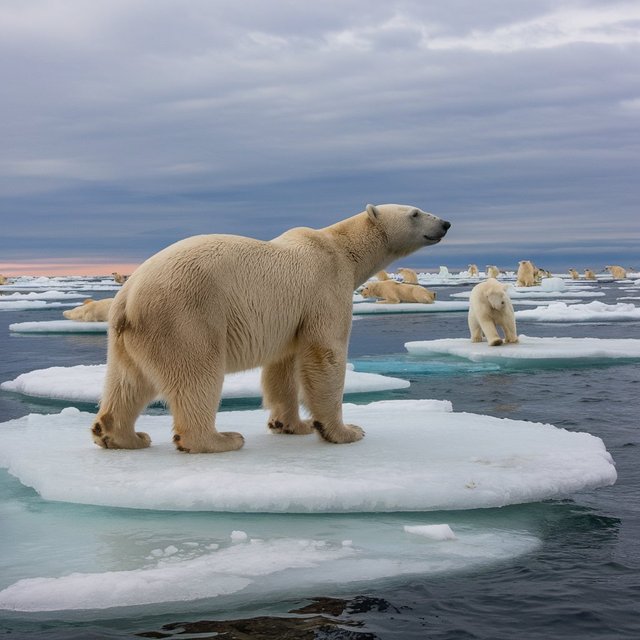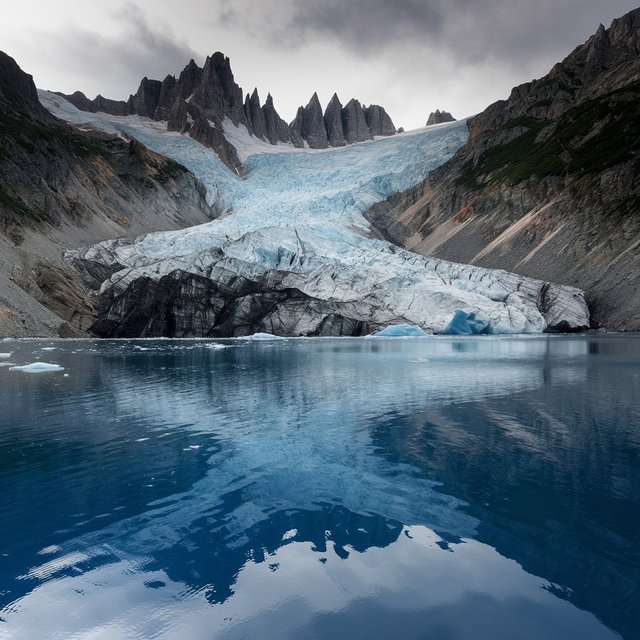.jpeg)
The Earth is heating at an unprecedented rate, and the consequences are no longer distant predictions—they are unfolding in real-time. From scorching heatwaves to catastrophic floods, the fingerprints of climate change are now undeniable. In 2023, global temperatures soared to record highs, with July marking the hottest month ever documented. Scientists warn that unless urgent action is taken, the planet will face irreversible ecological, economic, and societal upheaval. This article explores how rising temperatures are already reshaping our world and what it means for humanity’s future.
The Science Behind the Surge
Human activities, particularly the burning of fossil fuels, deforestation, and industrial agriculture, have pumped greenhouse gases like carbon dioxide and methane into the atmosphere at alarming rates. These gases trap heat, creating a “blanket” effect that disrupts Earth’s climate systems. According to the Intergovernmental Panel on Climate Change (IPCC), atmospheric CO₂ levels have reached 420 parts per million—the highest in 4 million years. The result? A planet that is now 1.2°C warmer than pre-industrial levels, inching dangerously close to the 1.5°C threshold set by the Paris Agreement.

Tangible Impacts of a Warming Planet
Extreme Weather Events
Rising temperatures supercharge weather patterns, leading to more frequent and intense disasters. Wildfires, once seasonal phenomena, now rage year-round in regions like Canada and Australia. Meanwhile, warmer oceans fuel stronger hurricanes and typhoons, as seen with 2022’s Hurricane Ian and 2023’s Cyclone Freddy. Floods, droughts, and heatwaves are becoming the new normal, displacing millions and straining global food systems.
Ecosystem Collapse
From coral reefs to polar ice caps, ecosystems are buckling under the strain. Australia’s Great Barrier Reef has lost over half its coral since 1995 due to ocean warming and acidification. In the Arctic, melting permafrost releases ancient methane, accelerating warming further. Species like polar bears and monarch butterflies face extinction as habitats vanish, disrupting biodiversity and food chains.
Human Health at Risk
Heat-related deaths are surging globally. In 2022, Europe saw over 60,000 fatalities during its summer heatwave. Rising temperatures also expand the range of disease-carrying insects like mosquitoes, spreading malaria and dengue fever to new regions. Air pollution, worsened by wildfires and industrial emissions, exacerbates respiratory illnesses, particularly in vulnerable communities.
Economic and Geopolitical Shocks
Climate disasters cost the global economy an estimated $313 billion in 2022 alone. Crop failures in breadbasket regions like India and the U.S. Midwest threaten food security, while water scarcity fuels conflicts in places like the Middle East and Sub-Saharan Africa. By 2050, the World Bank predicts over 200 million “climate refugees” displaced by rising seas and uninhabitable zones.
The Race to Adapt—and Mitigate
While the crisis is dire, humanity is not powerless. Governments, corporations, and individuals are mobilizing to curb emissions and adapt to new realities:
Renewable Energy Transition: Solar and wind power now account for 12% of global electricity, with countries like Iceland and Norway leading the charge toward 100% renewable grids.
Green Innovation: Carbon capture technology, drought-resistant crops, and urban green infrastructure offer hope for resilience.
Policy Shifts: The European Union’s Green Deal and the U.S. Inflation Reduction Act signal growing political will to prioritize climate action.
Yet progress remains uneven. Wealthy nations, responsible for the bulk of historical emissions, must ramp up funding for developing countries bearing the brunt of climate impacts. Meanwhile, fossil fuel lobbyists continue to slow critical legislation, underscoring the need for public pressure and grassroots activism.
A Call for Collective Action
The climate crisis is the defining challenge of our time—a threat multiplier that exacerbates inequality, threatens livelihoods, and endangers future generations. While systemic change is essential, individual choices also matter: reducing meat consumption, supporting sustainable brands, and advocating for climate-conscious leaders can drive momentum.
As U.N. Secretary-General António Guterres starkly warned in 2023: “We are on a highway to climate hell with our foot still on the accelerator.” The window to avert catastrophe is narrowing, but it’s not yet closed. By confronting the crisis with urgency, innovation, and solidarity, we can still reshape our trajectory—and safeguard a livable planet for all.